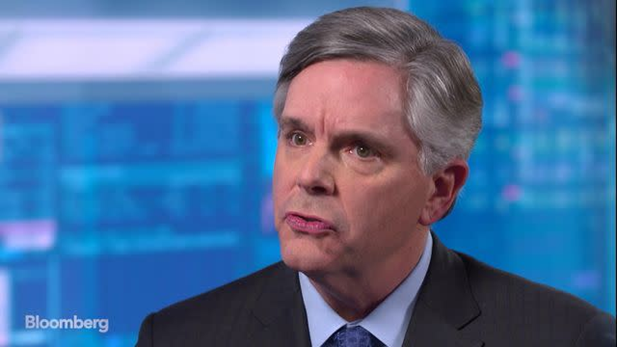A Story of Continuous Improvement: Find out how this executive attained his success through constant improvement!
| Happy Monday! Welcome to “Mindfulness by Miles!” Let’s kickstart the new week by diving into the story of one of our “Marvels” who has built a reputation for transforming companies into successful ones! Any idea who we’re referring to? Continue reading to know who this executive is! |
A Story of Continuous Improvement: Find out how this executive attained his success through constant improvement! When this executive was still a business student at Harvard Business School, he cold-called George Sherman, then-CEO of manufacturing conglomerate Danaher and asked if he could work in Sherman’s firm. Eventually, he landed a job and worked for Danaher for 11 years… and eventually ended up running the show at the firm when none other than Sherman himself, chose this person to take over as CEO in 2011. With this executive at the helm, Danaher took off and saw its revenues soar to USD 20 billion from USD 4 billion by the time he retired in 2014. What’s more? Danaher’s market capitalization grew to USD 50 billion under the 14 years of this “Marvel’s” leadership. His name? Henry Lawrence “Larry” Culp, Jr.!
Culp was born and raised in Washington, D.C. He earned his bachelor’s degree from Washington College and earned his MBA from Harvard business school During his tenure as the leader of Danaher, Culp spearheaded the transformation of the company from a traditional manufacturer into a shrewd acquirer of business that had tons of upside potential.
Culp essentially leveraged and improved upon what’s called the Danaher Business System (DBS), a strategy created by brothers Steven and Mitchell Rales. DBS is a simple system. If Danaher can buy a small company at a reasonable price, improve its operations based on the system’s principles, and increase the business’ values as a result, it will make the acquisition. The system prioritizes the acquisition of a small company because if it fails to integrate, it has a very small chance of hurting Danaher’s overall business With each successive acquisition, Culp and the rest of the Danaher executive team got better at implementing DBS. What’s more? Culp fully utilized DBS’ biggest strength: Its potential to snowball. It’s not just Danaher’s management that implements the system. Every single subsidiary it acquires has to use it too. Through DBS, Danaher kept expanding into industries like life sciences, water quality, and industrial manufacturing. Once the firm got into those segments, its subsidiaries started buying even smaller businesses, meaning they could grow even faster. By the time Culp ended his 14-year tenure as Danaher’s CEO, the company had acquired more than 140 companies. When he took over as CEO, GE was grappling with mounting debt, stagnating profits, and stock price that dropped to record lows Upon taking over, Culp oversaw GE’s extensive reorganization and strategic alignment. One of the major developments that happened during his leadership was GE’s division into three public companies, each focusing on a sector where the company had a foothold. As a result of splitting GE up into more specialized business units, Culp was able to spin the giant conglomerate into publicly traded companies in healthcare and aviation. Today, GE Aerospace is a market darling since it is well-positioned to capitalize on the high demand from both defense and travel sectors. Personally led by Culp as its CEO and chairman, the aviation firm is racking up billions in profits by selling engines and reaping margins on overhauling, inspecting, and providing spare parts for its products that are in service As of 2024, and barely a decade in, Culp successfully turned GE around from a conglomerate that’s too big and bogged down by bureaucracy into separate firms that are well-positioned to succeed in their respective sectors Kaizen is Key At the heart of Culp’s success is his embodiment of and belief in the philosophy called Kaizen, or the Japanese term for “continuous improvement.” Kaizen encourages incremental changes that cumulatively lead to significant improvements over time An important aspect of Kaizen is eliminating waste through three tenet
During his tenure at GE, Culp embodied Kaizen’s core philosophy and tenets when he eliminated inefficient operations, pursued production efficiency, fostered a culture of productivity, and pursued the elevation of the quality of offerings through continuous improvement. Simply said, Culp’s practice of this forward-thinking philosophy helped him become the executive he is today. — Culp’s success stories at Danaher and GE shows that Kaizen, when embraced fully, is a philosophy that can spur innovation and lead to high company performance. So, if you’re looking for ways to elevate your career or business, you should definitely think more about Kaizen and its tenets By adopting this forward-thinking and improvement-driven philosophy, you’ll be able to change not only what you are doing, but also how you’re doing it, paving the way for better performance and even greater outcomes. Hope you’ve found this week’s topic interesting and helpful EXCITING NEWS AHEAD The world of work has shifted, and there’s no going back. The barriers to entry have never been lower for talented professionals to work independently, and today’s massive external workforce is hardly a pandemic-produced fad. Business owners can only survive in the new work landscape by partnering with this deep talent pool. With decades of experience in both small-business entrepreneurship and executive management at PwC, I truly believe that the future of work is independent. With that, I’m happy to share with you that my book, co-authored with Walter Scott Lamb, is now available for pre-order on Amazon! Free Birds Revolution: The Future of Work & The Independent Mind This is an essential read for both independent professionals and corporate executives. Here, we provide educational and practical guides to unpack the ever-growing workforce and offer you crucial ways to become a client of choice. Click on the link above to pre-order your copy. Let this book help you future-proof your career and organization in the new world of work. Stay tuned for next Monday’s Marketing Marvels! In a past “Marketing Marvels” article, we talked about the South Korean girl group BLACKPINK, which consists of members Jisoo, Jennie, Rosé, and Lisa. Learn more about Jennie Kim of BLACKPINK in next week’s article! |

Miles Everson
CEO of MBO Partners and former Global Advisory and Consulting CEO at PwC, Everson has worked with many of the world's largest and most prominent organizations, specializing in executive management. He helps companies balance growth, reduce risk, maximize return, and excel in strategic business priorities.
He is a sought-after public speaker and contributor and has been a case study for success from Harvard Business School.
Everson is a Certified Public Accountant, a member of the American Institute of Certified Public Accountants and Minnesota Society of Certified Public Accountants. He graduated from St. Cloud State University with a B.S. in Accounting.




